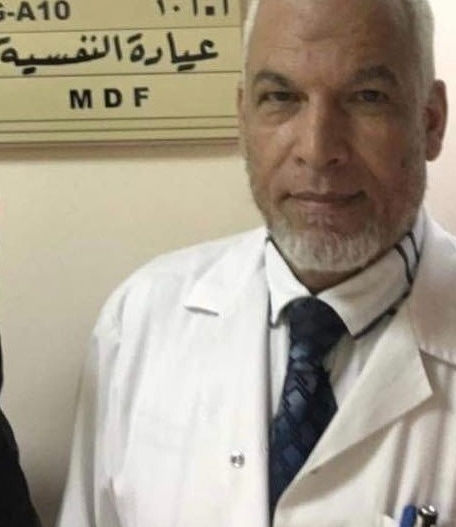On May 23, the Supreme Court in Riyadh, the Saudi capital, upheld the 10-year prison sentence of Egyptian national and physician Dr. Sabri Shalaby. The Specialized Criminal Court (SCC) sentenced him to 10 years in prison on trumped up terrorism-related charges following a grossly unfair trial.
He was held in solitary confinement for the first ten months of his detention and in incommunicado detention for three months during this period.
Amnesty International urges the Saudi Arabian authorities to release Dr. Sabri Shalaby immediately. Pending his release, he must be granted immediate access to adequate medical care.
Here’s what you can do:
Write to the Saudi King urging him to:
- Ensure that Dr. Sabri Shalaby is released immediately, and that his conviction and sentence are quashed.
- Pending his release, grant Dr. Sabri Shalaby the adequate medical care he requires.
Write to:
King Salman bin Abdul Aziz Al Saud
Office of His Majesty the King
Royal Court, Riyadh
Kingdom of Saudi Arabia
Fax: +961 11 403 3125 (please keep trying)
Twitter: @KingSalman
Salutation: Your Majesty King Salman bin Abdulaziz Al Saud:
And copy:
Mr. Abdulaziz Mohammed H. ALBADI
Chargé d’affaires
Royal Embassy of Saudi Arabia201 Sussex Drive
Ottawa, ON K1N 1K6
Tel: (613) 237-4100 Fax: (613) 237-0567
Email: caemb@mofa.gov.sa
Background
Dr. Sabri Shalaby is a physician who worked in Saudi Arabia’s Ministry of Health between 2006 and 2019. In 2017, he filed a lawsuit before the Administrative Court in Tabuk for financial compensation after realizing that he was registered with a lower job title than his actual one for the past ten years.
In 2019, the court ruled in his favor, ordering the Ministry of Health to pay out his owed financial dues retroactively. However, the Ministry appealed the ruling, terminated his contract and issued an exit visa for Dr. Shalaby.
Prior to the appeals session, security officers who identified themselves as members of the General Directorate of Investigations (GDI) in Tabuk, a city in north-western Saudi Arabia, arrested Dr. Shalaby from his home on January 28, 2020.
Unlawful detention
They did not disclose the reason for arrest and told him that he was only being taken for brief questioning. They thoroughly searched the entire house and confiscated his medical books, laptop, mobile phones and USB sticks. Dr. Sabry’s family said that the officials did not present an arrest or search warrant.
Dr. Shalaby was detained in Abha prison in the south-western region for the first two and a half years of his detention, then taken to Dhahban Prison near Jeddah where he continues to be held. His trial began before the Specialized Criminal Court (SCC) in February 2021 for charges relating to his alleged support for the Muslim Brotherhood.
He was tried in a trial of eight people, the majority of whom he said he did not know and had never met. The SCC initially sentenced him to 20 years in prison, to be followed by deportation from Saudi Arabia. Upon appeal, the sentence was reduced to 10 years.
Unfair trials
According to information available to Amnesty International, the prosecution presented no material evidence related to his alleged support for the Muslim Brotherhood, which Saudi Arabia has designated a terrorism organization and relied on testimonies of two others being tried with him in addition to a confirmation from the Egyptian National Security Agency that Dr. Shalaby is supportive of the Muslim Brotherhood.
During Dr. Shalaby’s first two interrogation sessions, he said he was questioned about his political affiliation and his relation to other individuals being tried with him. The court never provided Dr. Shalaby with the evidence which was used to convict him of his support of the Muslim Brotherhood.
Crackdown on dissent
Amnesty International has documented the Saudi Arabian authorities’ use of the Specialized Criminal Court (SCC) since 2011 to systematically silence and punish dissent, concluding that SCC judges have presided over grossly unfair trials, handing down prison sentences of up to 30 years and numerous death sentences under vague provisions of the counter-terror and anti-cybercrime laws.













